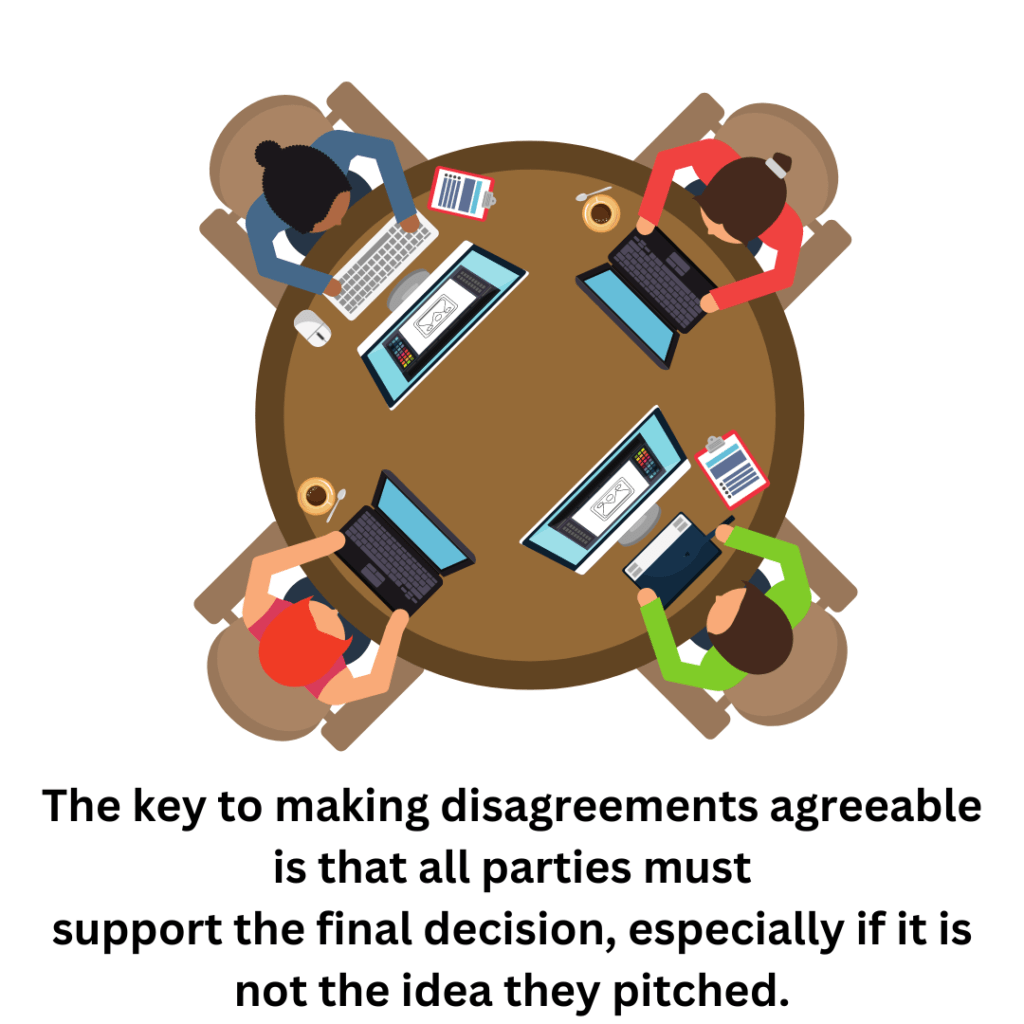It was a well-researched project analysis. You submitted it to your boss, but he found that your opinion on the conclusion was different from his. You see his point, but still believe that you have based your opinion on the facts that were analyzed thoroughly.
You have a round table discussion on the different market trends, trying to project what would be the best course of action to take for the company’s next product. Everyone has a different thought, and of course, you are very convinced of yours.
Don’t this sound familiar? Each of us have experienced what it is to be caught in a stalemate. No one to give in. No one wants to budge. Yet everyone also knows that a decision has to be made. So how do we move forward?

Don’t take it Personally
This is fundamental. Disagreements in the workplace are simply that, disagreements. We should avoid thinking that the ones you work with want to differ from your opinion because they are against you. Try to go beyond the tone of voice and body language. Though these are important, no doubt, it would be better to first have an unbiased view of the person in front of you. If one of the parties involved puts his/her defenses down, the other one usually follows suit. Also, this helps the discussion flow in a more professional manner.
Listen
This is, without a doubt, something that many people tend to forget. Since we can be wrapped up with our own ideas, we fall into the trap of simply thinking that what we have done is the best or what we have finished working on is the best. We fail to realize that others too have done their best. An open ear to the ideas of those we work with can help settle disagreements in a more pleasant manner. In addition to this, in listening, one can find out that the ideas can be somewhat similar. You will be surprised that the people you work with also have the good of the company in their minds, i.e. you both a have common goal. It may just be that the process is different.
Learn to Compromise

In the end, since each person thinks of the good of the company, one can agree on what is more essential. The accidental in every solution is negotiable. Hence, know the accidental of your plan and at the same time, know what is necessary. In doing so, the deadlocks and stalemates will be greatly reduced, thus opening more paths to reach a consensus and an agreement. This type of attitude also makes the other party re-think of their own negotiables and non-negotiables leading the m to also open other avenues for dialogue.
Lastly, the key to making disagreements agreeable is that all parties must support the final decision, especially if it is not the idea they pitched. An uncooperative team member or employee may lower the morale of the team or workplace. Instead of pulling up each other, the balance is titled. So think, who did you really commit yourself to? Yourself or the good of the company? It just boils down to these two.





Leave a Reply